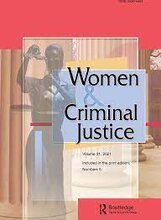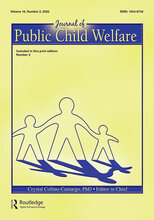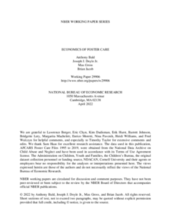This page contains documents and other resources related to children's care in the Americas. Browse resources by region, country, or category.
Displaying 311 - 320 of 3191
This study examines the perceptions of 145 incarcerated mothers of minor children in a large Midwestern jail to understand the correlation between where their children are living during their incarceration and the mothers’ feelings about these placements and relationships with their children. Mothers were most satisfied if children lived with maternal grandparents, and least satisfied if children were in foster care. Women with higher scores for the relationship with close relatives, those having contact with their child(ren) while incarcerated, and mothers with no children in foster care reported feeling better about these placements. The findings highlight the importance of women maintaining contact with their children and their children’s caretakers while incarcerated.
New research conducted by Ofsted found that just over half of children living in children's homes in England had residential care included in their care plan. This "illustrates the challenges faced by the children, and by social workers and commissioners trying to find suitable care for them, as well as by the children’s homes that are aiming to meet the children’s needs,” according to the report entitled Why Do Children Go Into Children's Homes?
Typical large-group institutions for abandoned children or orphans are known to be bad for the development of children, but what about small-group care?
More than 2,000 have reached the U.S. border with Mexico, where an expected spike in migration from other countries will raise tough questions: Who gets priority?
A case now before the U.S. Supreme Court poses grave challenges to America’s landmark federal law that makes it more difficult for local child welfare agencies to separate Indigenous children from their families and tribes. But as of last month, 10 states including New Mexico have enacted local policies to make sure their residents are protected should the federal law known as ICWA, the Indian Child Welfare Act, be struck down by the high court. The 10 states include several that are home to the largest Indigenous populations within United States borders.
Most of the thousands of children who are reported missing each year are in foster care, and some members of Congress want the federal government to do more to respond to the problem. Researchers know that most youth are only gone for a week or so but that many aren’t located for a month or more.
Time: 2:30pm - 3:45pm ET
This qualitative interview study assessed the pandemic’s impact on the educational experiences of foster youth in the United States from the perspectives of their caseworkers. Participant caseworkers discussed how the pandemic affected the academic progress and social/emotional development of youth in foster care and highlighted some challenges of online learning.
This paper describes tradeoffs in child welfare policy in the United States and provides background on the latest trends in foster care practice to highlight areas most in need of rigorous evidence. These trends include efforts to prevent foster care on the demand side and to improve foster home recruitment on the supply side. With increasing data availability and a growing interest in evidence-based practices, there are opportunities for economic research to inform policies that protect vulnerable children.
These two case studies focus on kinship care: one describes kinship care in the Kenya context and the other describes family-based alternative care in Guatemala, including kinship care. They are meant to help practitioners better understand the practical implications of kinship and other forms of family-based alternative care and inform similar work in other contexts. These case studies have been produced by Changing the Way We CareSM, a global initiative implemented by Catholic Relief Services and Maestral International, and other global, national and local partners working together to change the way we care for children around the world.







